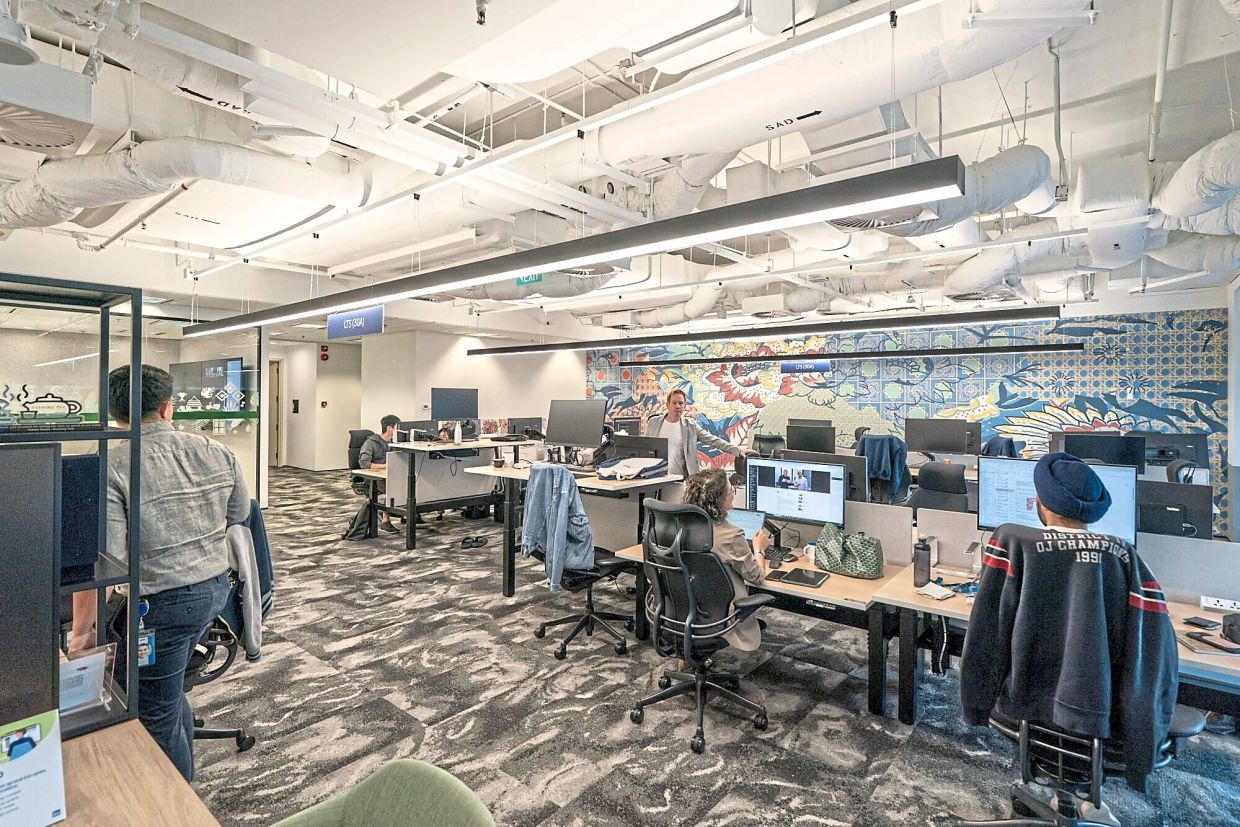
Equitable environment: Employees in an office in Singpore. The country has proposed legislation prohibiting employers from discrimination in employment decisions.— Bloomberg
SINGAPORE: Singapore’s fair employment watchdog has not received any complaint of discrimination against workers by employers who use human resources (HR) tools powered by artificial intelligence (AI), but the government is closely monitoring the trend to ensure that guidelines and regulations remain adequate to protect the workforce.
“If certain AI use results in discriminatory employment practices, workers or job applicants can approach the Tripartite Alliance for Fair and Progressive Employment Practices (Tafep) for assistance,” Manpower Minister Tan See Leng said on Wednesday.
He told Parliament: “Tafep will work with the employer to address the grievances of the workers or the job applicants and ensure that the employer’s recruitment or performance appraisal processes adhere to the principles of fair employment.
“To date, Tafep has not received complaints of discrimination arising from the use of AI tools.
“The government will continue to closely monitor the trends in AI adoption and work with our tripartite partners, the Institute for Human Resource Professionals and the broader HR community to regularly assess if the existing guidelines and regulations are adequate.”
The minister was responding to a question from Member of Parliament (MP) Patrick Tay, who was concerned that AI tools that substantially assist or replace discretionary decision-making could lead to biases in hiring or promotion.
Tay said companies should be transparent where such tools are used to rank candidates or assess employees for promotion.
Acknowledging the concerns, Tan said AI technologies are evolving at a rapid pace but it would not be practical for the government to be overly prescriptive or overly tight in terms of regulations.
The “best nuanced approach”, he said, is to continue to maintain the responsible use of AI.
He noted that the government has introduced a model AI governance framework on the responsible use of the technology.
The minister’s comments came a day after a new Bill was introduced in Parliament on Nov 12 to protect workers from workplace discrimination.
The proposed legislation sets out five areas where employers cannot discriminate against workers in employment decisions such as hiring, firing and appraisals.
The five areas are nationality; age; sex, marital status, pregnancy status and caregiving responsibilities; race, religion and language; and disability and mental health conditions.
Employers who discriminate against workers on account of any of these five characteristics will be subject to punitive action for serious breaches.
This includes fines and civil lawsuits filed by the Manpower Ministry (MoM), where the courts can impose higher financial penalties on errant employers.
If passed, the legislation is expected to take effect in 2026 or 2027.
Besides Tay, two other MPs also raised concerns about the impact of AI tools on workers.
Dr Tan Wu Meng was concerned about the intention behind using the technology.
He said: “With AI, it can be difficult to ascertain intention because the AI is not able to give testimony and be cross-examined, or provide information for investigation the way a human can be questioned.”
Responding, the minister said that there is a need for constant vigilance to ensure that workplaces remain equitable.
He added that the ministry will work with companies to see if some of the AI algorithms have an inherent bias in looking at certain characteristics, and therefore favour hiring or promotion based on those.
“Sometimes, it may not be an intention. It could be a function of the datasets that the company is using,” he said.
Leader of the Opposition Pritam Singh said that there is a power imbalance in the employer-employee relationship, and information asymmetry in favour of the employer.
He asked: “What new approaches would MoM consider to encourage employees to raise concerns to Tafep or to any other appropriate authority and MoM?”
The manpower minister said the majority of employers are responsible, and it is important to maintain the harmonious ecosystem through tripartism, which is the three-way partnership between the government, employers and unions.
“But I want to reassure the leader that every single complaint, every single question, is dealt with expeditiously, in a very clear and transparent manner,” he said.
He added that there will be a database for complaints.
“By building a database, a repository of the nature of the different types of complaints, it would sharpen our ability to protect employees better, and at the same time maintain that balance for employers.” — The Straits Times/ANN










































